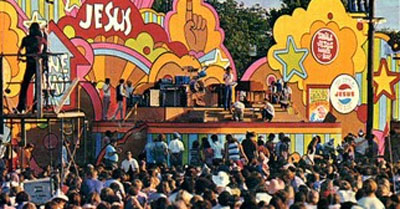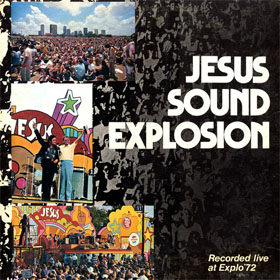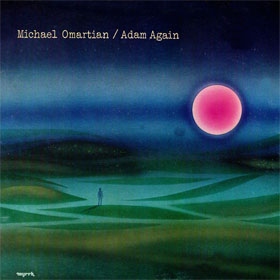Featured song: The Truth Will Set You Free, by Dion DiMucci, from his 1980 album, Inside Job.
 In my last post, I discussed “love” as it was sought for by the generation that came out of the 1960s, and what they were seeking. Another thing that they were looking for was truth.
In my last post, I discussed “love” as it was sought for by the generation that came out of the 1960s, and what they were seeking. Another thing that they were looking for was truth.
The problem with a search for “truth” is that the definition differs from one person to another. This is unfortunate, because it leads people to believe in “relative truth”, that truth changes under differing circumstances or with different people.
So, what exactly is truth? It does not have to do with preferences, where one person likes Italian food, but his friend likes Japanese food instead. It might have to do with a political alignment, depending on what that party is advocating. It certainly can apply to clearly reproducible scientific principles (gravity, mass, velocity, etc.)
Why should “truth” be a matter of debate? Shouldn’t it be self-evident? If that were the case, there would be much less conflict in the world, from the levels of country versus country all the way down to husband versus wife. The nature of truth has been an issue since the very day that Adam and Eve chose to listen to a voice other than God’s, and acted on what sounded like a “better” truth than what they had already been told.
The “truth” that you choose to follow has an impact on your entire life. If my personal interpretation of traffic laws means that “55 MPH” is a suggestion rather than the law (or truth), then I will have a conflict with the officer who pulls me over for going 75.
There are also truths that are true whether or not anyone believes them. The truth of gravity is in effect even if I choose to not to accept it. I will fall to the ground when I jump off the roof, even if I think that I am able to fly.
Going back to the people of my generation, those who were becoming disillusioned with the truth of “free love” and “free your mind”: Many discovered that this freedom from the rules of society, from the rules of their parents, tended to bind them to other problems. And, at the end of the day, after they had lived with their new truth, the emptiness of life still faced them.
Discovery of the truth of Jesus results in a kind of freedom unknown to the unsurrendered heart. His truth directs me away from focusing on doing “my own thing” and instead pulls me to learn to do His “thing”.
In John 8:31-32, Jesus said to those to whom He was speaking, “If you hold to my teaching, you are really my disciples. Then you will know the truth, and the truth will set you free.” The song I share today from Dion DiMucci speaks of the truth told to a young man by his father, the truth about Jesus, the truth that can set a person truly free.
Down the dirty city street
Blacktop sneakers on my feet
I raced through early teenage years
And dealt with all those nameless fearsWaiting as the school bell rang
To drop my books and join the gang
And alley fights and stickball games
The passing girls wore dirty namesOver my shoulder and back through the years
I can see my father’s eyes in my memory
“Jesus died upon the cross
All was won and nothing lost”
And how the Truth will set you free, yeah
And how the Truth will set you freeI turned my collar, I combed my hair
I’d hide all the confusion there
When two dimes made my pockets ring
I was a wealthy New York kingBeing cool by the candy store
I knew my world, yet wanted more
My high school colors of black and blue
They would disturb my point of viewAnd over my shoulder and back through the years
I could see my father’s eyes in my memory
Saying, “My Jesus died upon the cross
All was won and nothing lost”
How the Truth will set you free, yeah
Son, the Truth will set you freeYou know, our candy store’s turned shopping mall
Huh, two dimes won’t buy you much at all
Boy Caruso on the street
Is a father now in slippered feetWho tells his son as years go by
How God’s the Truth, hate’s a lie
It’s not what’s in your pocket, son
But what’s in your heart that makes us oneOh, over your shoulder and back through the years
You will see your father’s eyes in your memory
Telling you, “Jesus died upon the cross
All was won and nothing lost”
And how the Truth will set you free, yeah
And son, the Truth will set you freeTruth will set you
Truth will set you freeTruth will set you
Truth will set you freeYou are free
You are free
That’s the truth, son
That’s the truth, sonTruth will set you
Truth will set you free
 |
Tags: Dion DiMucci, truth
Featured song: A Love Song by Love Song, from the 1972 compilation album Jesus Sound Explosion.
I mentioned last time about the mind-set in the early to mid 1970s amongst some who had gone through the 1960s and who were disillusioned with how things actually turned out. So many groups had been speaking of love — love-ins, the “Summer of Love”, and “love is the way”, but what did they really get out of it? More sex did not result in more love; it just led to a continued search for that perfect experience, and still had the emptiness afterwards of the non-relationship. Even if they didn’t catch some STD, it still didn’t fill that empty hole in the heart.
Drugs were no better. “One pill makes you larger, and one pill makes you small,” sang the Jefferson Airplane. The expanded mind, whether using LSD or peyote or marijuana, was fine while the experience lasted. After it was over, life was just the way it was before.
And then we had this phenomenon appear, these people at coffe houses or concerts who were singing about … Jesus? What did religion have to do with the real, nitty-gritty, down-to-earth life anyway? As it turned out, quite a lot. The search for the perfect experience was actually a search for the Creator and the life He could provide. The search for “love” was the same thing — a longing for a real love that could accept me, regardless of who I was or what I had done.
 For a week in June, 1972, an event was held in Dallas, Texas that had a profound effect on a large number of people, and re-directed many lives. Explo ’72 was organized by Campus Crusade for Christ, and was a conference with speakers who motivitated attendees to learn how to reach the world for Jesus. The week culminated in an outdoor Christian music festival held on June 17. The crowd in attendance has been estimated to be between 100,000 and 200,000, and the concert lasted eight hours, featuring many of the early musicians of the Jesus movement, including Randy Matthews, Armageddon Experience, Larry Norman, Danny Lee & The Children Of Truth, and even more famous performers, such as Johnny Cash. This music festival was a factor that ignited further interest in the whole genre of Jesus music (what later was labeled as Contemporary Christian Music), and launched some of the groups who performed there to national prominence. It also had a profound affect on many who attended, motivating them to spend their lives in Christian ministry.
For a week in June, 1972, an event was held in Dallas, Texas that had a profound effect on a large number of people, and re-directed many lives. Explo ’72 was organized by Campus Crusade for Christ, and was a conference with speakers who motivitated attendees to learn how to reach the world for Jesus. The week culminated in an outdoor Christian music festival held on June 17. The crowd in attendance has been estimated to be between 100,000 and 200,000, and the concert lasted eight hours, featuring many of the early musicians of the Jesus movement, including Randy Matthews, Armageddon Experience, Larry Norman, Danny Lee & The Children Of Truth, and even more famous performers, such as Johnny Cash. This music festival was a factor that ignited further interest in the whole genre of Jesus music (what later was labeled as Contemporary Christian Music), and launched some of the groups who performed there to national prominence. It also had a profound affect on many who attended, motivating them to spend their lives in Christian ministry.
One of the new Christian groups that performed at Explo ’72 was Love Song. The performance of their signature song was unique in the recitation of 1 Corinthians 13, the famous “love chapter” in the Bible. When I heard this recording, several years after the event, I was most struck by hearing this chapter, read from the Living Bible paraphrase. Hearing it in this unfamiliar form made the words have all the more impact to me, helping to nail down that this was what love was about, this was the love that everyone had been looking for. The perfect love that was described was a love that could only be obtained with a relationship with God through Jesus Christ.
Lend an ear to a love song
Ooh, a love song
Let it take you
Let it startWhat can you hear in a love song
If you can feel it
Then you’re feeling
From the heartAll the emotion, true feelings of life
Is what music of love is about
If you are listening with peace in your heart
And no doubtSo listen now
To a love song
Ooh, a love song
Let it take you
Let it start[spoken]
If I had the gift
of being able to speak in other languages
without learning them,
and could speak in every language there is
in all of heaven and earth,
but didn’t love others,
I would only be making noise.If I had the gift of prophecy,
and knew all about what is going to happen
in the future,
knew everything
about everything,
but didn’t love others,
what good would it do?Even if I had the gift of faith,
so that I could speak to a mountain
and make it move,
I would still be worth nothing at all
without love.If I gave everything I had to poor people,
if I were burned alive for preaching the gospel,
but didn’t love others,
it would be of no value whatever.Love is very patient
and kind,
never jealous
or envious,
never boastful
or proud,
never haughty
or selfish
or rude.Love does not demand its own way,
it is not irritable or touchy,
it does not hold grudges,
and will hardly even notice
when others do it wrong.It is never glad about injustice,
but rather rejoices
whenever the truth wins out.If you love someone,
you’ll be loyal to him,
no matter what the cost.
You will always believe in him,
you will always expect the best of him,
and always stand your ground
in defending him.All the special gifts and powers from God
will someday come to an end,
but love goes on forever.
Someday prophecy,
and speaking in unknown languages,
and special knowledge,
these gifts will disappear.Now, we know so little,
even with our special gifts,
and the preaching of those most gifted
is still so poor.
But when we have been made
perfect and complete,
then the need for these inadequate special gifts
will come to an end,
and they will disappear.It’s like this:
When I was a child,
I spoke
and thought
and reasoned
as a child does.
But when I became a man,
my thoughts grew far beyond
those of my childhood,
and now I have put away
the childish things.In the same way,
we can see
and understand
only a little about God now,
as if we were peering
into a reflection
of a poor mirror.
But some day
we are going to see Him
in His completeness,
face to face.Now, all that I know
is hazy
and blurred,
but then
I will see everything clearly,
just as clearly
as God sees into my heart
right now.There are three things that remain:
Faith,
hope,
and love.
And the greatest of these
is love[sung]
So listen now
To a love song
If you can hear it
We will never be apart.
 |
Episode #125 of Jerry Bryant‘s radio show Full Circle is up on his web site. The theme is rejection, healing, and worship, and you can hear songs by Andy Pratt, Randy Stonehill, Amy Grant, Dion DiMucci, Bob Bennett, Bryan Duncan, Matthews Taylor & Johnson, Twila Paris, Ed Raetzloff, and Scott Wesley Brown.
As usual, you can find the podcast on the iTunes Store to hear the show. Take a listen!
Featured song: Annie The Poet, by Michael Omartian, from his 1976 album, Adam Again.
I grew up during the 1960s, and began to pay attention to the phenomenon of rock & roll music by the middle of the decade. I remember many summer afternoons swimming at the community pool down the street from our home, with the background of current pop music playing over the loudspeakers. When I hear the songs “Sunshine Superman” by Donovan, or “Summer In The City” by The Loving Spoonful, it makes me think of that pool (and also identifies it as the summer of 1966).
This was further brought to my recollection as I listened to The History Of Rock & Roll “rockumentary” recently. Those who identified with the music of the 60s saw a change in the worldview presented as the decade progressed. It started with a focus on love, cars, and fun, and by the end of the decade the music was dealing with more weighty subjects and introspection about the Vietnam war and uncertainty about life itself. There were still “fun” songs, but many were more concerned about the realities of life and the world.
Not only were songwriters paying attention to these issues, but some of them were also thinking about spiritual matters. Beatle George Harrison stated in an interview:
The main thing that I felt from the 60s thing that happened was the realization that all the goodness and all the strength and things that can support life, is all coming out of love. And not just as simple … as one guy saying to a chick “I love you”, you know, as a personal, as an emotional kind of a thing, that is. But the love … just real love which is like unconditional love. [Because] so often we say, “I love you if“, you know; “I love you when“, “I love you but“. And that’s not real love. You know, I don’t want to just hear the word, I want to feel it and see it and be it.
Harrison had the right idea about the selflessness necessary for real love, but he sadly was unaware of the true Source of that love. His former bandmate John Lennon later voiced some of his philosophy in his song Imagine: Imagine there’s no heaven, no hell below, no religion, no possessions. His rejection of True Spirituality caused him to turn his eyes away from those aspects of spiritual reality to what he thought was the truth. In actuality, he also had cut himself away from Truth.
Like these poets of the 60s, many at that time who had no firm spiritual anchor found themselves pulled and pushed by the social and metaphysical tides and storms of the decade. Some found themselves washed ashore with sadness, hopelessness, or worse. And many wondered if there was anything better to look forward to. Pop and rock music was not the cause of this state of mind, but was rather a reflection of it. The music forced many to face the realities of life.
Music affects people on so many levels: emotionally, intellectually, and sometimes physically. For people like me, the greatest effect has been the impact of the lyrics; that’s why on the posts I’ve made on this blog, I’ve wanted very much to illustrate the value of songs through their words. The quality of the music dresses up the words, just as icing on a cake makes it perfect.
Those words can have a profound impact on the heart of an open listener, for better or worse. Searchers for truth in the late 1960s and early 1970s would immediately jump on the words being sung, if it provided a glimpse into that truth. Today’s song relates the desire of the writer, Michael Omartian, to get beyond the superficial things that people say, and dive into the feelings in their hearts. And the “poet” that he was encouraging the listener to hear was, in reality, Annie Herring of the 2nd Chapter Of Acts. Listen to Omartian’s words, and then go and pull out some of songs from Annie’s group to deepen your heart.
I don’t wanna hear about your conquests
Or your casual affairs
Each one a great new story,
But who cares?I wanna know about your feelings
Or the ache in your heart
The thoughts that make you what you are
That set you apart.
‘Cause maybe I’ve had them, tooI come to where you’re playing often
And you know why I do
‘Cause maybe you will sing about
What I have felt, tooOf things I’ve never told a soul
Because of my pride
And long time fears that keep it hidden
Way down inside
And I’ll know what you meanAnd I’ll say, Go hear Annie the poet
She sings of something she’s lost
Mistakes that were made in her childhood
And the price that they’ve cost
Well I have lost that, tooAnd I’ll say, Go see Annie the poet
She sings of something she’s found
I don’t see that in my own life
When I look around
I want to find that, too
I want to find that, tooThe rich man hears the word of truth
And doesn’t care
The poor man sees his prospects
Scattered everywhereWell I’m a poor man
Looking to get rich upon your words
So lift my heavy spirit
With the truth you’ve heard
And I’ll know what you meanAnd I’ll say, Go hear Annie the poet
She sings of something she’s lost
Mistakes that were made in her childhood
And the price that they’ve cost
Well I have lost that, tooAnd I’ll say, Go see Annie the poet
She sings of something she’s found
I don’t see that in my own life
When I look around
I want to find that, too
I want to find that, too
 |
Tags: Michael Omartian, searching, truth





